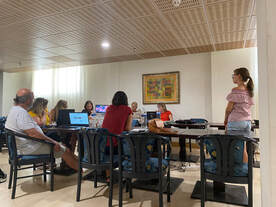 Did you know that from early childhood to adulthood, play stands as a cornerstone of cognitive development? Reflect on your favorite games - do they ever fail to captivate your interest? These games create invisible threads weaving together our memories, experiences, and emotions. Whether it's classics like hide-and-seek, puzzles, construction games, or board games, they all share a common thread: the innate ability to ignite our curiosity and engagement. From 18/09/2023 to 24/09/2023, an exciting event unfolded in Tenerife - the latest edition of the course "Discover the Power of Game-Based Learning and Gamification in Education". Participants journeyed from across Europe, including noteworthy representatives like Spyridoula and Kosmas from 3ο Geniko Lykeio Alexandroupolis in Greece, Alexandra, Klaudia and Andrea from Budapest IX. Kerületi Weöres Sándor Általános Iskola és Gimnázium in Hungary, Milena from Private Secondary School "Educational Technologies" in Bulgaria, Ann from Oscar Romerocollege in Belgium. This educational week was ingeniously structured to resemble a game itself, similar to progressing through levels in a video game. Participants were encouraged to craft their unique characters, much like avatars in a video game. This innovative approach created a platform for participants to discover each others skills and passions, unveiling the rich diversity close to the reality of every classroom. In the beginning stages, conversations centered on the educational advantages of integrating games into the learning process. It marked a significant moment of recognition, highlighting that many educators find themselves in the role of digital immigrants within an educational environment largely influenced by digital natives. Through thought-provoking challenges, the focus was on distinguishing between gamification and game-based learning: gamification entails introducing game elements into non-gaming situations, while game-based learning seamlessly incorporates educational content into gameplay. The important result achieved in the second part revolved around participants descriptions of the eight essential internal and external motivators that influence human engagement to form a conventional gamification framework. Participants enthusiastically embraced role-playing activities, fully immersing themselves in the motivations that drive typical gamers. In the third phase, the focus was on exploring tools and applications related to games. Participants identified, examined, and creatively transformed familiar games into engaging educational resources. Following their successful navigation of challenges, participants were given the chance to design their own tools, both offline and online. The climax unfolded in the ultimate stage when players took their activities outdoors, embarking on an exhilarating city-center treasure hunt. This was followed by an intriguing virtual escape room adventure where they deciphered puzzles and riddles to secure their freedom. Subsequently, participants engaged in strategic discussions, devising plans to infuse gamification into their classrooms while taking into account the distinct needs and characteristics of their students. After successfully traversing through all the phases, participants revealed innovative methods to tap into the hidden learning potential within even the most traditional games. They also unearthed online resources with the potential to greatly boost student engagement for a newfound enthusiasm within their classrooms. Discover more about this course here At school, we rarely value creativity. The focus is always set on the analytical process, both during the study phase and the evaluation phase. The further we advance in our studies, the less we are able to think outside of the box, resulting in a big waste of potential, since divergent thinking can be a life-improving skill.
The new edition of the course “Promoting Creativity, Critical Thinking and Problem-Solving in the classroom” took place in Palermo from 17/09/2023 to 23/09/2023. The participants came from all across Europe, with Greta, Katrin, Bergit and Merike from Merivälja School, Estonia; Amélie from HEPL University College, Belgium; Diandra from St. Monica School, Gzira, Malta; Beáta from Nyíregyházi SzC Wesselényi Miklós Technikum és Kollégium, Hungary. Traditionally, creativity is seen as a “gift”, either you have it or you don’t. Actually, as it is shown by studies, creativity is a skill and as such, it can be trained. Furthermore, it is one of the most required skills of 21st century, both for personal and professional growth. Our training course started with a focus on the most required 21st century skills and the “4 Cs”: Creativity, Critical Thinking, Communication and Collaboration. The theoretical contents were learned through practical activities, such as the creation of crosswords and visual brainstorming. The latter, in particular, marked the starting point of a reflection on the differences between convergent and divergent thinking, as for their characteristics and principles. Moreover, starting from the analysis of concrete examples, we could think about the interrelation of these two elements and see that they are both necessary to perform efficiently at every kind of task. During the week, a lot of challenges on how to think outside of the box were presented to our participants and met by them. These activities were also useful to find out the barriers to creative thinking. To foster lateral thinking (but also critical thinking) we trained in the use of the “6 thinking hats technique” and tried to apply it to the different subjects and needs of teachers, from assignments to self-evaluation and also formative assessment. Concerning assessment, we also investigated the topic of peer assessment and review and how to give feedback. During the second part of the course, the focus shifted towards visual strategies and the 5 steps of the creative process. A series of activities and digital examples were presented, followed as usual by practical work, reflection, implementation and again reflection on the topics covered. Critical thinking was a core topic of the training course. We analyzed the power of questions and the participants engaged in a series of activities on how to make good questions and also activities that challenged their usual perspective, designed to foster critical thinking itself. For the same reason, a lot of time was devoted to debates and sharing sessions on best practices. During the whole week, the participants were open to dialogue and their contribution was really valuable. While working on the different tasks and activities, they were able to create an amazing team, and it showed during the last day of our course, which was focused on problem solving games (both traditional and innovative) and on teamwork. It was an incredible week. We are sure that all the participants will be able to apply what they learned during this training course in their professional environment and that it will have a good impact on the promotion of creativity, problem solving and critical thinking as key skills. Discover more about this course here. The Positive Effects of Hiking on People: Exploring the Mental, Behavioral, and Emotional Benefits of Walking in Nature and Cities. Also, Studying How Trekking Education Links Effective Learning with Environmental Conservation Amidst Climate Change Challenges. The new edition of the course “Outdoor learning and adventure education” took place in Tenerife from 24/09/2023 to 30/02/2023. The participants came from all across Europe, with Veronika from Infinity-progress z.s. in Czech Republic, Aki from Hatanpään lukio in Finland, Marju from Tallinna Lilleküla Gümnaasium in Estonia, Amanda and Maria from Östervåla skola in Sweden, and Petra and Anita from Lilla Téri Elementary School in Hungary We began by explaining Trekking Education and Outdoor Education concepts. We explored different methods to encourage students to enjoy trekking adventures, understanding that 'outdoor' isn't restricted to natural settings like forests. During this session, participants learned to teach subjects such as science, math, music, art, and language through engaging activities, increasing their awareness of the urban trekking environment. Another part of the course involved using various tools in local parks to conduct activities in a natural setting. The games and activities we practiced were well-received, inspiring participants not only to share their experiences with the group but also to create their own outdoor activities. Participants learned about Non-Formal Education (NFE), which focuses on real-life experiences during activities. By asking the right questions, students can connect new knowledge to their lives. On Wednesday, we visited El Teide mountain and national park, where we trekked around Roques de Garcia, a stunning attraction in Tenerife. During the trek, we discussed the importance of teamwork and team spirit in the classroom, as well as how to motivate students for trekking and outdoor activities. On Thursday, we took on the longest trek of the week, hiking from Mirador Cruz del Carmen to El Bosque de los Enigmas. After learning about trekking-based teaching methods and the 10 Kurt Hahn principles, and experiencing urban and wilderness treks, each participant created a lesson plan incorporating trekking into their teaching subject. The final part of the course focused on creating a personalized trekking experience designed for the specific age group of each participant's students. Considering the students' ages, desired skills, and educational topics, each trekking instructor carefully planned their session. On Friday, after a scenic walk through banana plantations, participants presented their plans at playa El Bollullo beach. This practical approach highlighted the effectiveness of experiential learning, equipping participants to create engaging trekking activities for their students. In this course, participants discovered a wide range of activities and games they can use with their students, proving that learning extends beyond the classroom walls! Discover more about this course here. One of the main challenges that we have to face nowadays is climate change, with all of its consequences and future threats. Due to its relevance, the debate around sustainability cannot be left outside of the classroom and it is time to raise awareness and to promote green habits, as well as green skills, starting from education.
The new edition of the course “Green skills for education: promoting environmental awareness and sustainable actions in the classroom”, took place in Palermo from 10/09/2023 to 16/09/2023, with 5 participants from 3 different countries: Stelios from Ministry of Education in Cyprus, Lisa from Zentrum für Förderpädagogik in Belgium, Beata and Hassan from Carlo-Schmid-Oberschule in Germany and Caroline from Paritätisches Bildungswerk Landesverband Thüringen e.V. in Germany. At the beginning of the week, the focus was set on the vocabulary of sustainability, discussing about the definitions and meaning of key terms such as Sustainability (and its pillars), Green Skills and greenwashing. Concerning the latter, we investigated the different practices related to this phenomenon and tried to sort them into the right categories. Later, the Agenda 2030 and Sustainable Development Goals (SDGs) were presented and discussed. In particular, we focused on 7 goals related to sustainability. Each activity carried out during the week was designed to be connected to a specific goal among these 7. Through practical activities, the participants could personally experience how to make a difference starting from one daily small step, as well as ways to engage young students and adults in the sustainable development topic. While performing these tasks, they also found out more about global warming, carbon footprint, and tipping points, and other aspects related to climate change. An important amount of time was dedicated to outdoor activities and to encourage creativity. Non formal education activities were carried out to promote critical thinking and engagement. For the same reason, the debate technique was encouraged throughout the training course and applied to the different topics covered. A significant aspect that was very cared for was the use of ICT tools to support the activities and to generate more engagement and effectiveness (in the classroom or at a workplace) but especially as a way of reducing the waste of paper and other materials, as part of our daily green practices. Another topic covered was Project Based Learning (PBL) as a tool to raise environmental awareness during the classes and to promote a green transition, as well as a possible way to introduce the sustainability topic in the curricula. Finally, the participants had the opportunity to share opinions not only about sustainability and environment, but also about their (different) jobs in the education field. The sharing of best practices was particularly important and deeply valued by this group of professionals who were able to make the most of these moments. They had good ideas on how to promote sustainability both inside and outside the classroom and were constantly trying to implement these ideas with inspirations and strategies gained during the training course, taking into account the advice given by their colleagues. Teamwork and network were for sure two of the many key words that can describe this inspiring week. We are certain that each participant will be able to apply effectively the knowledge acquired to change our environment for the better. Discover more about this course here. In contemporary teaching, each new generation of students requires the introduction of new software applied to their teaching. In many cases, the use of these new apps implies the continuous training of the teachers who must use them. Therefore, at Erasmus Learning Academy (ELA) we specialize in offering this formation with the course Integrating ICT and new technologies into teaching and education. The last edition of this course, held in Bologna, took place from 7/08/2023 to 12/08/2023, with participants from Cyprus, Spain, Czech Republic, Romania, Bulgaria and Poland. During the course, given by trainer Martina Granata, participants were able to learn in a practical and simple way how to use some of the most popular educational tools, as well as methods to implement them in their methodology, dealing with topics such as gamification, non-formal education, or Information and Communication Technologies (ICT). At the end of the training, all participants were given a certificate of attendance to corroborate their participation in the course. As in all our courses, the participants also had the opportunity to discover the wonderful city of Bologna with our volunteers, who offered them a series of sightseeing tours of the city center and accompanied them to some of Bologna's fantastic restaurants. We want to show our gratitude to the participants that took part in this course: Panagiota Kyprianou and Yianna Nemeh, from St. Luke's Parents Association for People with Disabilities; Lourdes Muñoz Pérez, from EOI MADRID - JESÚS MAESTRO; Beatriz Díaz Gutiérrez and Elena Mª García Adame, from CEPA MEDARDO MUÑIZ; Martina Kokořová, Romana Nováková and Monika Bodyová, from Střední odborná škola zdravotnická a střední odborné učiliště; Tănase Alin Gabriel, Tănase Sorina and Jilavu Emilia Crina, from Școala Gimnazială "Costache Grigore Șuțu"; Desislava Tihomirova Tsenkova, Desislava Mitkova Apostolova-Koycheva, Anzhela Vasileva Ivanova and Tsvetomila Evgenieva Vasileva, from SU Pencho P. Slaveikov. Thank you for your participation! Discover more about this course here Why is it that we hear so often about stress and conflicts? What tools can we bring to better manage the stressful and conflicting situations we encounter throughout our lives? We tried to give an answer to these questions during the new edition of the course “Stress and Conflict Management: the way to resilience and satisfaction” which took place in Palermo from 27/08/2023 to 02/09/2023. The participants came from all across Europe, with Boglárka from István Széchenyi Bilingual Secondary School of Economics in Hungary, Aniko Budapest III. Kerületi Krúdy Gyula Angol-Magyar Két Tanítási Nyelvű Általános Iskola in Hungary, Sandra, Danuta, Ewa and Katarzyna from Specjalny Ośrodek Szkolno Wychowawczy dla Dzieci i Młodzieży Niepełnosprawnej in Poland, Anna, Daiga and Paula from Babites Secondary School in Latvia, Zoltan from Klebelsberg Kuno Általános Iskola és Gimnázium in Hungary, Pauliina from Sastamalan Opisto Sastamala Community College in Finland. To begin with, we tried to give a definition to what is “stress” and what are the main causes and consequences of a stressful situation, investigating concepts such as "stressors" and the “Flight or Fight response”, reflecting also on the positive and negative aspects of stress (Eustress vs. Distress). Simulations, role plays, and hands-on activities guided us in discovering cognitive and behavioral coping strategies, and in exchanging ideas and best practices to use at school to integrate these activities into the curriculum. Next, we looked at how communication techniques are crucial when it comes to stress and conflict management. The communication style used, which can be assertive, aggressive, passive, or passive-aggressive, can have direct impacts on the development of situations and relationships with others, especially when we talk about setting out boundaries and saying “No”. In addition, we investigated the importance of developing emotional intelligence in stress and conflict management, and in particular discussed the value of empathy in the relation with others. We then addressed the concept of conflict, trying to reflect that conflict is not always negative, but is often a source of growth, change and rebirth. Without conflict it would be impossible to change some situations that we do not like or to affirm our ideas, values and opinions. Finally, we saw how mindfullnes can be a way to become more aware of what is happening to us and to welcome the present as it is: “You can’t stop the waves, but you can learn to surf”, Jon Kabat-Zin. To conclude, we would like to share with you a comment of one of the teachers of the group, Pauliina: “What great experience this has been. I'm absolutely sure I can be a better teacher and share my knowledge to my students and colleagues. Thank you!” Discover more about this course here.
In today's work and everyday life, the significance of soft skills is continually on the rise. Abilities like emotional intelligence, empathy, teamwork, conflict resolution are indispensable both within and beyond educational settings. Through a blend of theoretical knowledge and hands-on exercises, our participants gained valuable insights into enhancing their communication competencies.
|
The traditional role of a teacher involves transmitting knowledge and facilitating skill development in students. Conversely, a coach is tasked with supporting and motivating their students through active listening, questioning, and posing challenges. While these roles may appear distinct, what if a teacher were to integrate coaching principles into the classroom, becoming both an educator and a motivator? |
This concept was fundamental during the new edition of the course “Emotional intelligence and coaching inside the school and educational context” that took place in Tenerife from 02/09/2023 to 09/09/2023. The participants came from all across Europe, with Lorraine from St. Monica School in Malta, Armando, Romeo, Elena, Raffaela, Chiara from CPIA Ancona in Italy, Monika from "Wichterlovo gymnázium, Ostrava-Poruba, příspěvková organizace" in Czech Republic, Valērijs and Randa from Liepaja Marine College in Latvia.
The course began with Coaching ourselves part. The participants explored their skills and checked which area of their life needs their attention in the moment in order to set a goal.
Next they moved to an exploration of Emotional Intelligence, which refers to the capacity to not only recognize our own emotions but also understand the emotions of others. This awareness enables a teacher to establish a connection with students, assisting them in managing their feelings effectively. |
Coaching entails inspiring and guiding individuals to become the best versions of themselves. To enhance our coaching abilities, they delved into the concept of setting SMART goals. Participants were tasked with defining SMART goals for themselves, ensuring they were Specific, Measurable, Achievable, Realistic, and Time-bound.
The course also delved into the potent influence of questions. Questions have the unique ability to stimulate thinking, self-reflection, constructive responses, and action, fostering idea development. As part of this course, participants explored the art of constructing learning-focused questions. This process began with an invitation to engage, presented thought-provoking content, and highlighted a cognitive focus for thinking and elaboration. Later using the GROW model, they tried to do their first coaching session, in order to understand how it really works.
Another critical coaching skill, relevant in any setting, including the classroom, is conflict management. Self-awareness and emotional control play pivotal roles in preventing the escalation of conflicts. Contrary to conventional belief, conflicts need not be inherently negative; they can serve as catalysts for growth and positive outcomes. As coaches, our role is to facilitate dialogues and support students in finding their solutions. It is crucial to note that a coach's function is not to impose solutions but rather to guide the analysis of the conflict, aid in decision-making, and evaluate behavior.
Throughout this training week, participants had the opportunity to share their collective experiences and draw insights from their diverse cultural backgrounds. They honed their coaching skills and discovered practical ways to apply them effectively in their classrooms.
Discover more about this course here.
Both being part of a work team and managing groups inside the classroom can be difficult. That is why it is very important to develop a set of skills suited to face this kind of challenges, both as a leader and as a team member. The aim of our course was to implement competences and abilities in group managing.
The new edition of the course “Effective Group Management in education: building Teamwork among students” took place in Palermo from 27/08/2023 to 02/09/2023. The participants came from two different beautiful European countries and from three different schools, with Anna, Alexandra, David, Gabor and Istvan from Gödöllői Református Líceum Gimnázium in Hungary; Monika and Monika from ZŠ s MŠ Častá in Slovakia; Renata, Mária, Katarína and Marta from Primary school Nejedlého in Slovakia.
At the beginning of the training course, we focused on the definitions of “team” and “group” and on the similarities but also on the differences existing between a group and a team. We then analysed the different development stages of a group following the Tuckman model, and examples of process loss and process win related to team performance were shown. Finally, on the first day, we talked about the pillars of group collaboration.
On the second day, the main topics covered where team roles and team building. A series of related practical activities were carried on. The participants faced the different tasks with great enthusiasm and cooperation, building the foundations for solid and efficient teams.
On the third day we focused on leadership and teamwork with participants creating very efficient teams while carrying on the practical activities promoted by the trainer.
Almost a whole day was dedicated to practice on Lightning Decision Jam, a workshop model to solve problems in groups. The participants were divided into two different groups and they carried on two separate LDJ; a traditional one, using a flipchart, and an online LDJ, through collaborative shared online spaces. At the end, each group presented its results and provided a detailed account of all the steps that were taken on LDJ by them.
During the last part of the course, we focused on two important topics: peer learning and assessment and feedback, with peer learning being particularly important to encourage students to become protagonists of their learning process.
During the whole week, participants came to explore a whole set of practical activities designed for the management of groups and they had time to think about how to use them during their lessons.
It was good to see them work with such efficiency and dedication. They built really positive group dynamics and were always open to dialogue and ready to express their ideas.
It was an amazing week, with a lot of added value coming from the contribution of the participants. We are sure that they will make good use of what they learned during the training course also in their classrooms, back to their schools and countries.
More info on this course here.
The new edition of the course “Effective Group Management in education: building Teamwork among students” took place in Palermo from 27/08/2023 to 02/09/2023. The participants came from two different beautiful European countries and from three different schools, with Anna, Alexandra, David, Gabor and Istvan from Gödöllői Református Líceum Gimnázium in Hungary; Monika and Monika from ZŠ s MŠ Častá in Slovakia; Renata, Mária, Katarína and Marta from Primary school Nejedlého in Slovakia.
At the beginning of the training course, we focused on the definitions of “team” and “group” and on the similarities but also on the differences existing between a group and a team. We then analysed the different development stages of a group following the Tuckman model, and examples of process loss and process win related to team performance were shown. Finally, on the first day, we talked about the pillars of group collaboration.
On the second day, the main topics covered where team roles and team building. A series of related practical activities were carried on. The participants faced the different tasks with great enthusiasm and cooperation, building the foundations for solid and efficient teams.
On the third day we focused on leadership and teamwork with participants creating very efficient teams while carrying on the practical activities promoted by the trainer.
Almost a whole day was dedicated to practice on Lightning Decision Jam, a workshop model to solve problems in groups. The participants were divided into two different groups and they carried on two separate LDJ; a traditional one, using a flipchart, and an online LDJ, through collaborative shared online spaces. At the end, each group presented its results and provided a detailed account of all the steps that were taken on LDJ by them.
During the last part of the course, we focused on two important topics: peer learning and assessment and feedback, with peer learning being particularly important to encourage students to become protagonists of their learning process.
During the whole week, participants came to explore a whole set of practical activities designed for the management of groups and they had time to think about how to use them during their lessons.
It was good to see them work with such efficiency and dedication. They built really positive group dynamics and were always open to dialogue and ready to express their ideas.
It was an amazing week, with a lot of added value coming from the contribution of the participants. We are sure that they will make good use of what they learned during the training course also in their classrooms, back to their schools and countries.
More info on this course here.
Human interaction with the natural world has significantly shaped cognitive, behavioral, and emotional development since ancient times. Even today, the act of immersing oneself in nature or admiring natural and urban landscapes remains a source of inspiration, wonder, and influence. Nature-based education represents an innovative pedagogical approach that addresses two pressing concerns in contemporary society: delivering enduring, high-quality education and fostering awareness of the critical imperative to preserve our planet in the face of the formidable challenge of climate change.
The recent edition of the course, titled "Nature-Based Education: A Fresh Approach to Teaching and Learning," occurred in Bologna from 27/08/2023 to 02/09/2023. Participants converged from diverse regions of Europe, including Martina Machačová and Jana Černá from Zemědělská akademie a Gymnázium Hořice in Czech Republic; Gabriella Nemesi from Néri Szent Fülöp Katolikus Általános Iskola in Hungary; Ewa Pawłowicz-Sosnowska from John Paul II University of Applied Sciences in Biala Podlaska from Poland and 6 attendees from Istituto Comprensivo Statale "Anna Frank" in Italy: Laura Amadei, Alessandra Conte, Alessandra Cappiello, Mirka Pretelli, Monia Grilli and Manuela Smacchia.
The recent edition of the course, titled "Nature-Based Education: A Fresh Approach to Teaching and Learning," occurred in Bologna from 27/08/2023 to 02/09/2023. Participants converged from diverse regions of Europe, including Martina Machačová and Jana Černá from Zemědělská akademie a Gymnázium Hořice in Czech Republic; Gabriella Nemesi from Néri Szent Fülöp Katolikus Általános Iskola in Hungary; Ewa Pawłowicz-Sosnowska from John Paul II University of Applied Sciences in Biala Podlaska from Poland and 6 attendees from Istituto Comprensivo Statale "Anna Frank" in Italy: Laura Amadei, Alessandra Conte, Alessandra Cappiello, Mirka Pretelli, Monia Grilli and Manuela Smacchia.
Commencing with an exploration of the concept of Nature-Based Education, the course delved into various approaches to facilitate students' engagement with the natural world. Importantly, this doesn't always necessitate immersion in pristine forests; therefore, a portion of the training was dedicated to Urban Nature Education within city environments. Here, participants acquired the skills to teach a spectrum of subjects, spanning science, mathematics, music, art, language, and more, by employing activities designed to heighten their awareness of their immediate surroundings.
Another significant segment of the course focused on hands-on practice in natural settings, often in local parks. All the games and activities tested were well-received and served as a wellspring of inspiration for participants, not only for sharing their experiences with the rest of the group but also for devising their unique nature-based activities.
Participants also delved into the principles of Non-Formal Education (NFE), a pedagogical approach that closely aligns with many outdoor activities. This approach places concrete experiences at the core of the learning process, enabling students to connect newly acquired knowledge to their lives and apply it effectively. By guiding students through the entire experiential cycle and framing reflective questions effectively, educators empower them to make these connections. During our second day of the course we visited a beautiful local beach "Bollullo" where we integrated our classroom and held activities.
The culminating phase of the course was dedicated to crafting bespoke nature-based experiences tailored to the target groups of each participant. After gaining insights into the principles of nature-based learning, exploring the 10 Kurt Hahn rules and their profound significance, and immersing themselves in a diverse array of urban and natural activities, on the final day of the course, each participant designed a nature-based lesson relevant to their subject matter. Considering their students' age, aptitudes, and the subjects they aimed to address, each teacher meticulously planned their session, presented it to their fellow course participants, and received constructive feedback for potential enhancements. This week vividly exemplified the effectiveness of experiential nature-based learning; through a hands-on approach, participants obtained a tangible sense of what a nature-based education activity entails and acquired the knowledge necessary to design such experiences for their students.
Throughout this course, participants had the opportunity to explore a rich repertoire of activities and games that they can readily replicate with their students, demonstrating that learning extends well beyond the traditional classroom setting.
To learn more about this course, please visit the provided link here.
Another significant segment of the course focused on hands-on practice in natural settings, often in local parks. All the games and activities tested were well-received and served as a wellspring of inspiration for participants, not only for sharing their experiences with the rest of the group but also for devising their unique nature-based activities.
Participants also delved into the principles of Non-Formal Education (NFE), a pedagogical approach that closely aligns with many outdoor activities. This approach places concrete experiences at the core of the learning process, enabling students to connect newly acquired knowledge to their lives and apply it effectively. By guiding students through the entire experiential cycle and framing reflective questions effectively, educators empower them to make these connections. During our second day of the course we visited a beautiful local beach "Bollullo" where we integrated our classroom and held activities.
The culminating phase of the course was dedicated to crafting bespoke nature-based experiences tailored to the target groups of each participant. After gaining insights into the principles of nature-based learning, exploring the 10 Kurt Hahn rules and their profound significance, and immersing themselves in a diverse array of urban and natural activities, on the final day of the course, each participant designed a nature-based lesson relevant to their subject matter. Considering their students' age, aptitudes, and the subjects they aimed to address, each teacher meticulously planned their session, presented it to their fellow course participants, and received constructive feedback for potential enhancements. This week vividly exemplified the effectiveness of experiential nature-based learning; through a hands-on approach, participants obtained a tangible sense of what a nature-based education activity entails and acquired the knowledge necessary to design such experiences for their students.
Throughout this course, participants had the opportunity to explore a rich repertoire of activities and games that they can readily replicate with their students, demonstrating that learning extends well beyond the traditional classroom setting.
To learn more about this course, please visit the provided link here.
Welcome to the ELA Blog. Here you will find articles and photos of our courses and have a look at the topics addressed during the week in Bologna, Palermo and Tenerife. You will also have the chance to take a peek at our projects and check out what we have been up to.
Archives
July 2024
June 2024
May 2024
April 2024
March 2024
February 2024
January 2024
December 2023
November 2023
October 2023
September 2023
August 2023
July 2023
June 2023
May 2023
April 2023
March 2023
February 2023
January 2023
December 2022
November 2022
October 2022
September 2022
August 2022
July 2022
June 2022
May 2022
April 2022
March 2022
February 2022
December 2021
November 2021
October 2021
September 2021
August 2021
July 2021
June 2021
 English
English български
български Čeština
Čeština Español
Español Français
Français ελληνικά
ελληνικά Italiano
Italiano Polski
Polski Português
Português Română
Română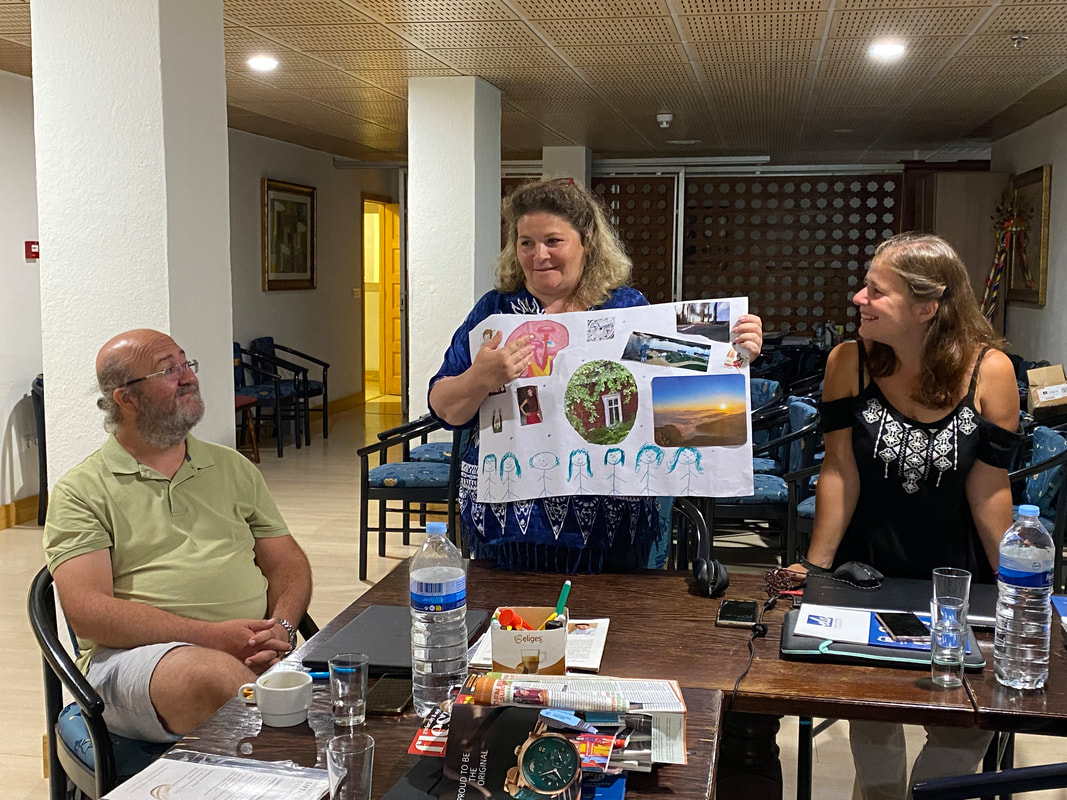
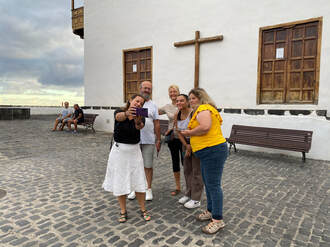
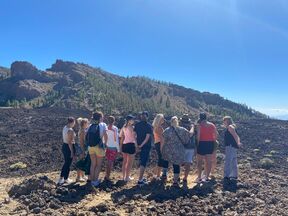
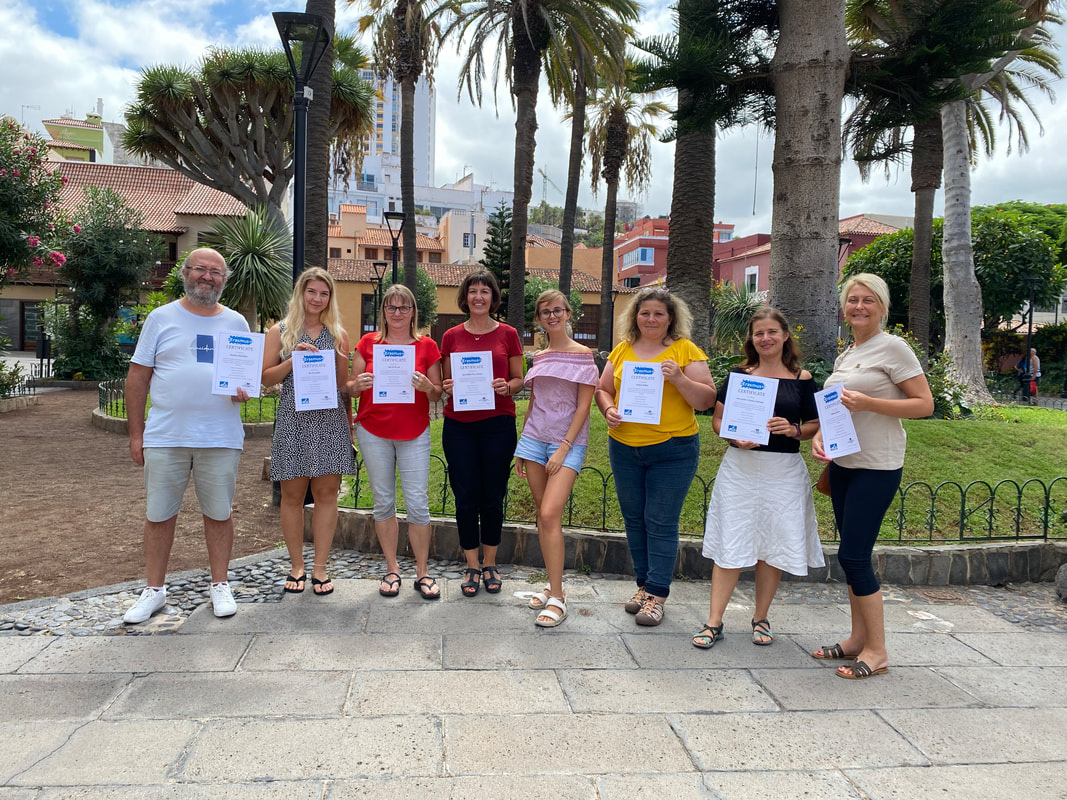
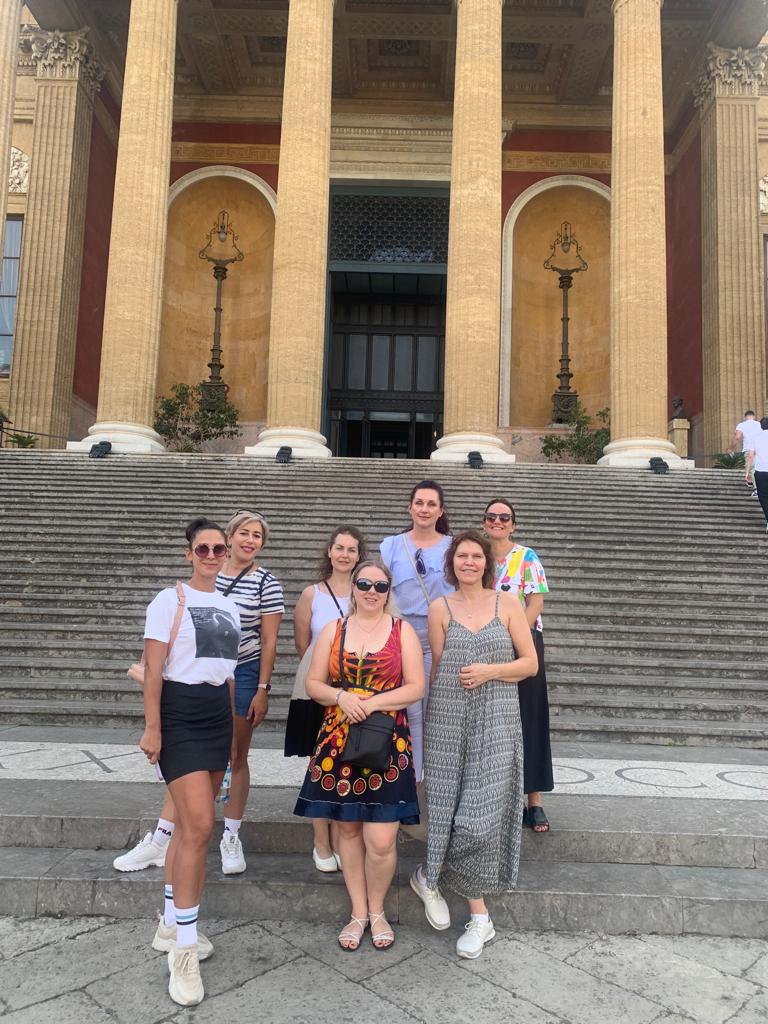
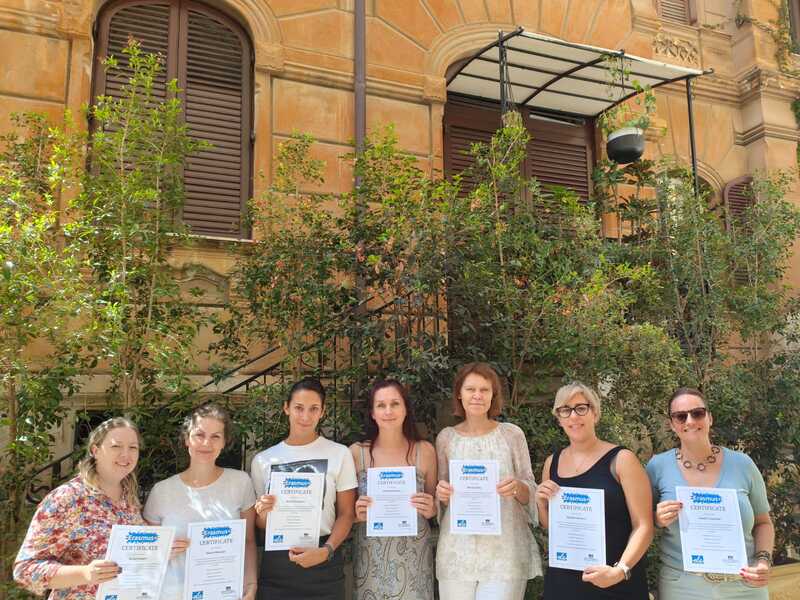
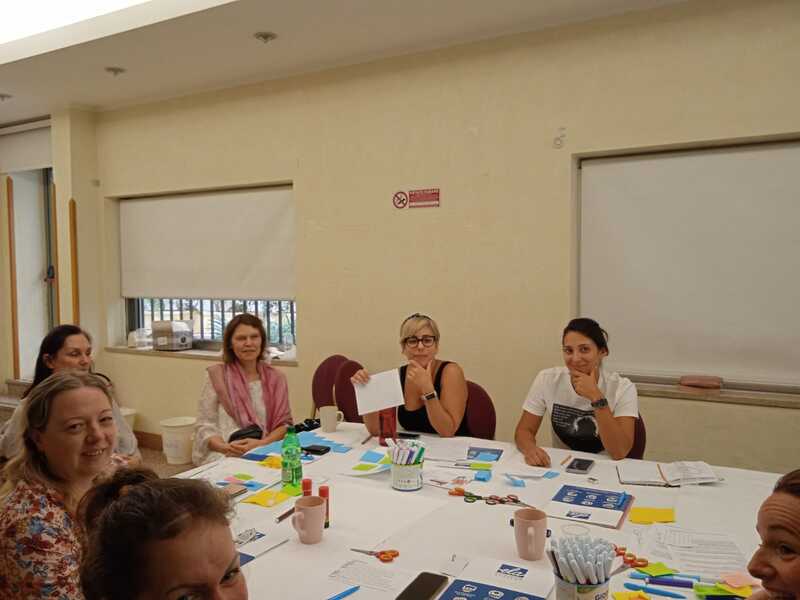
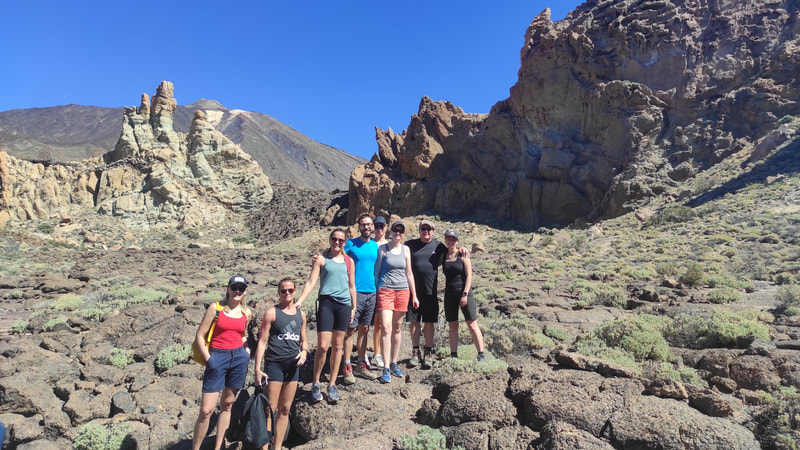
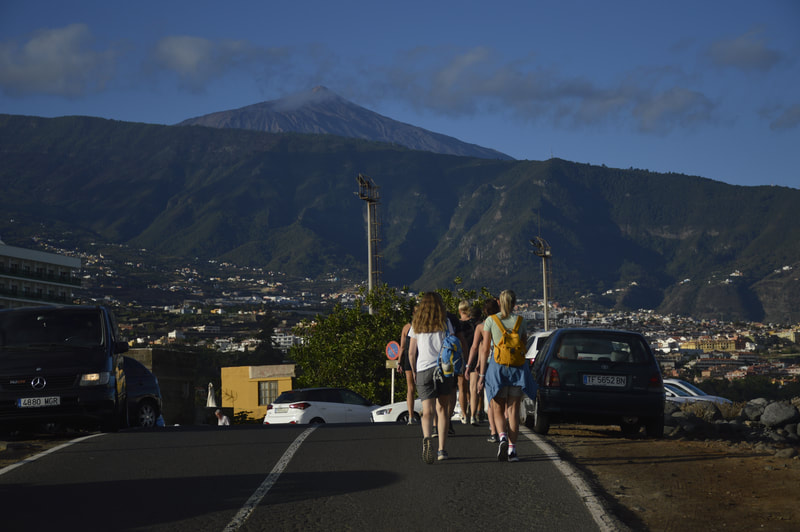
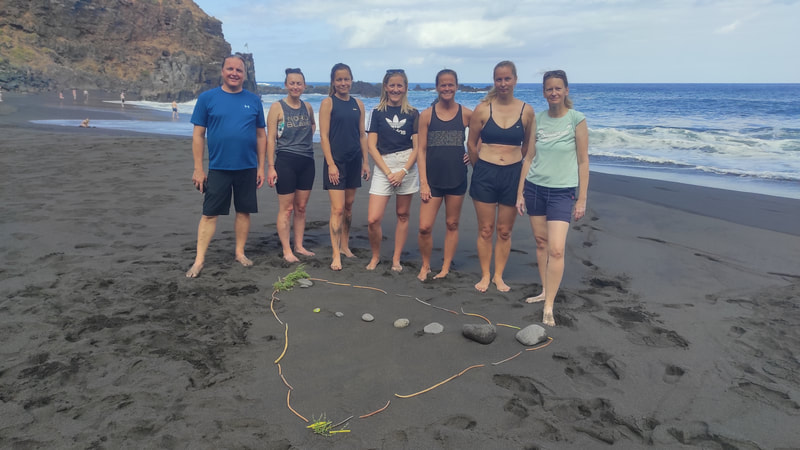
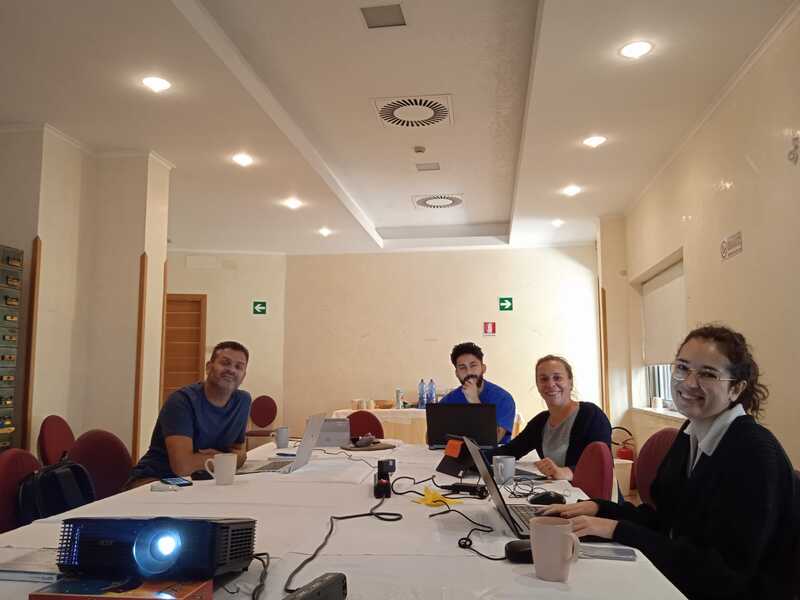
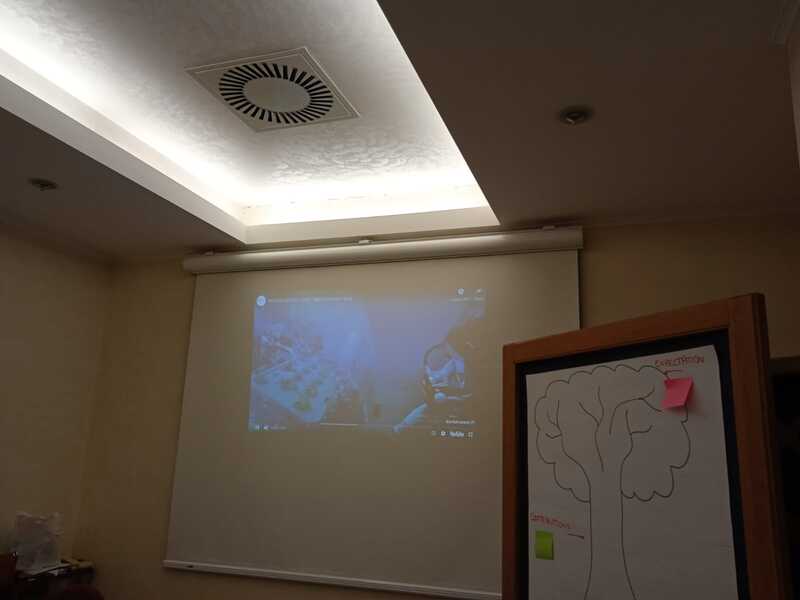
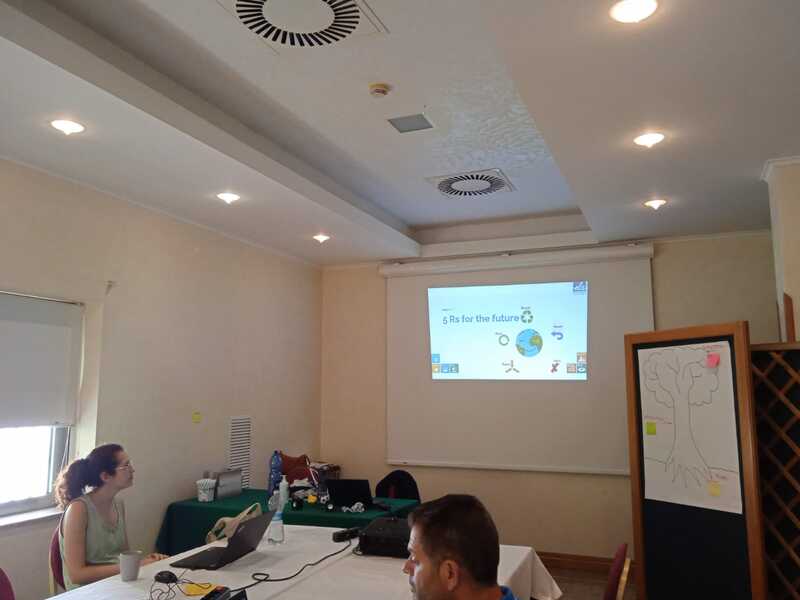
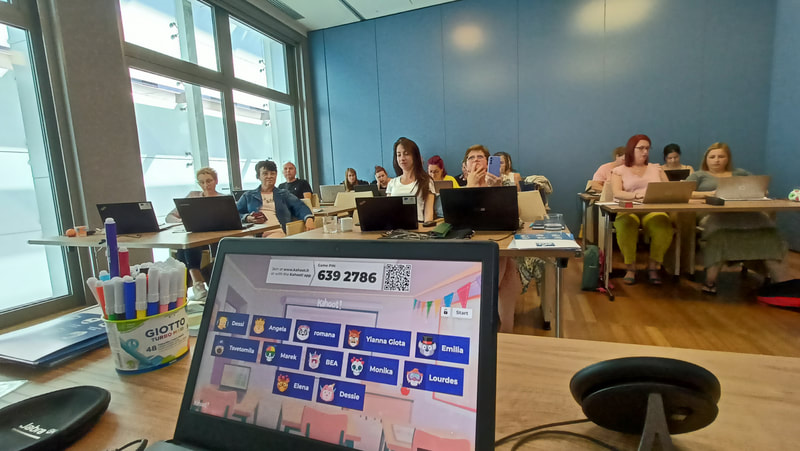
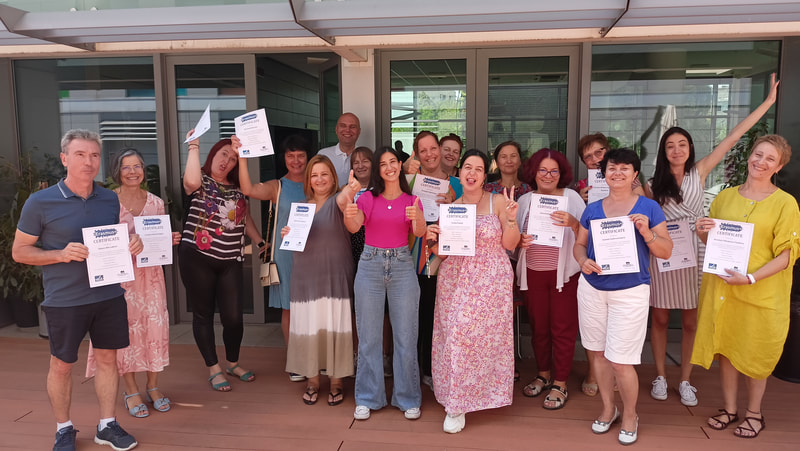
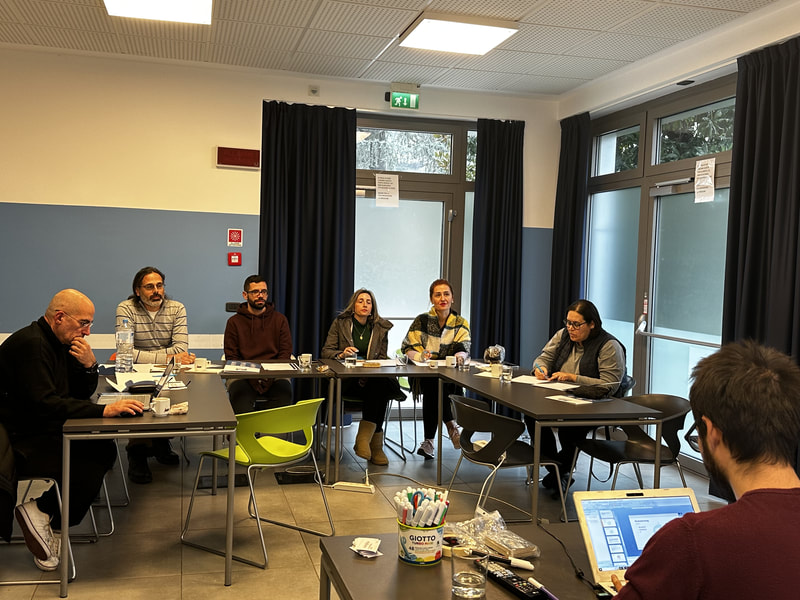
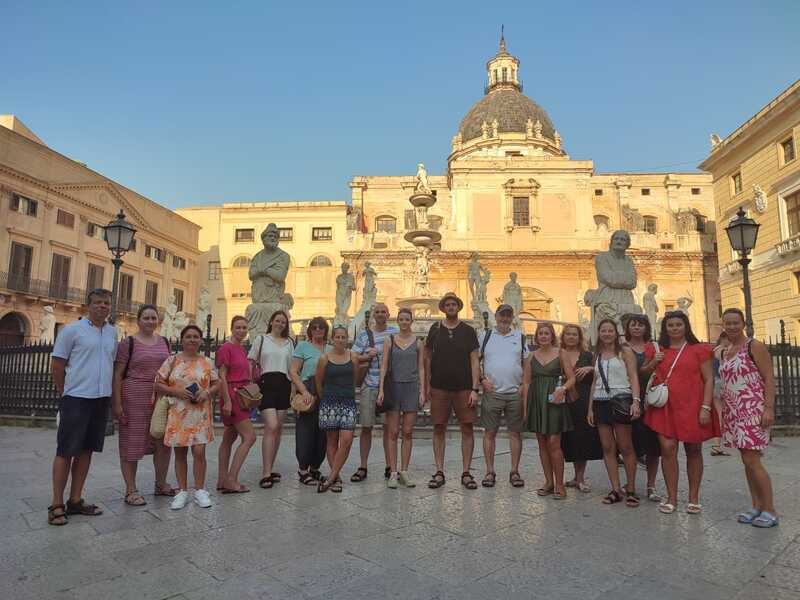





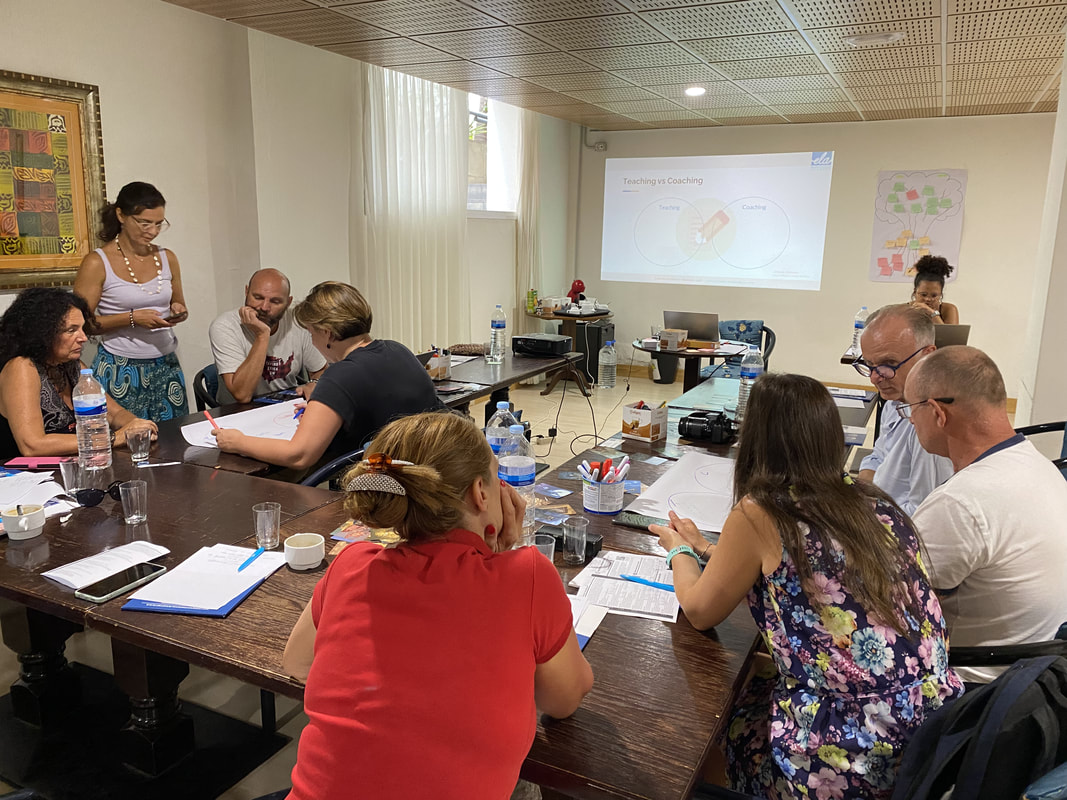
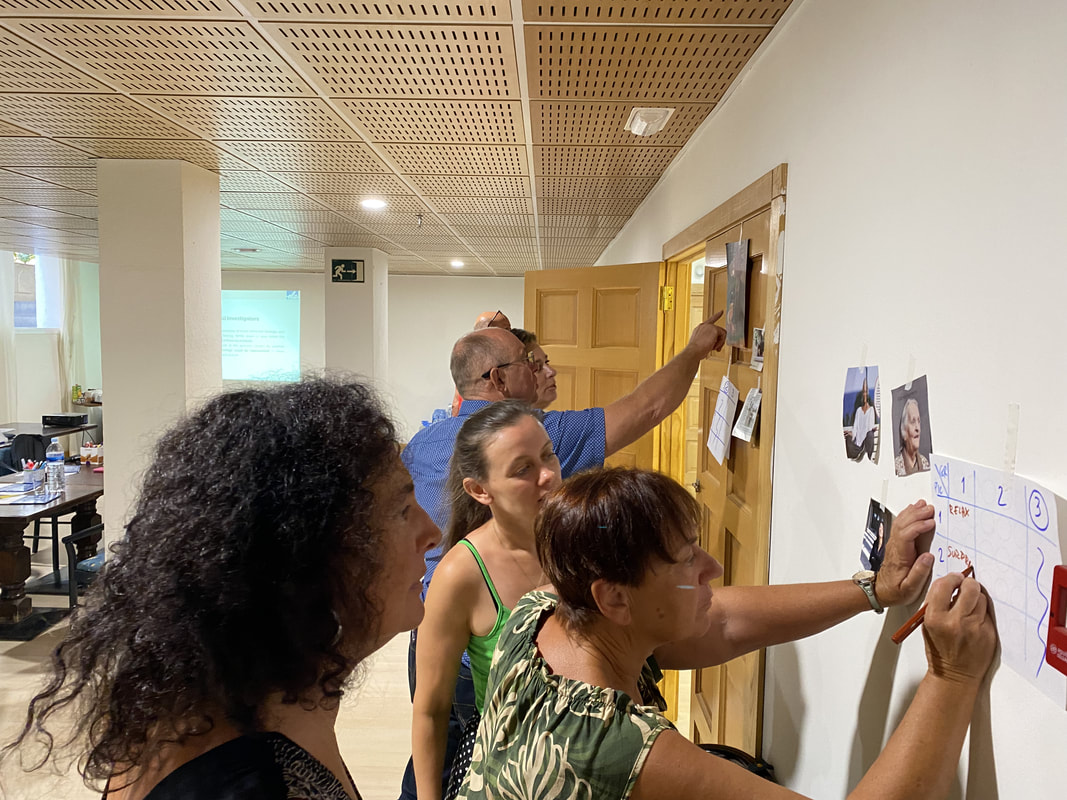
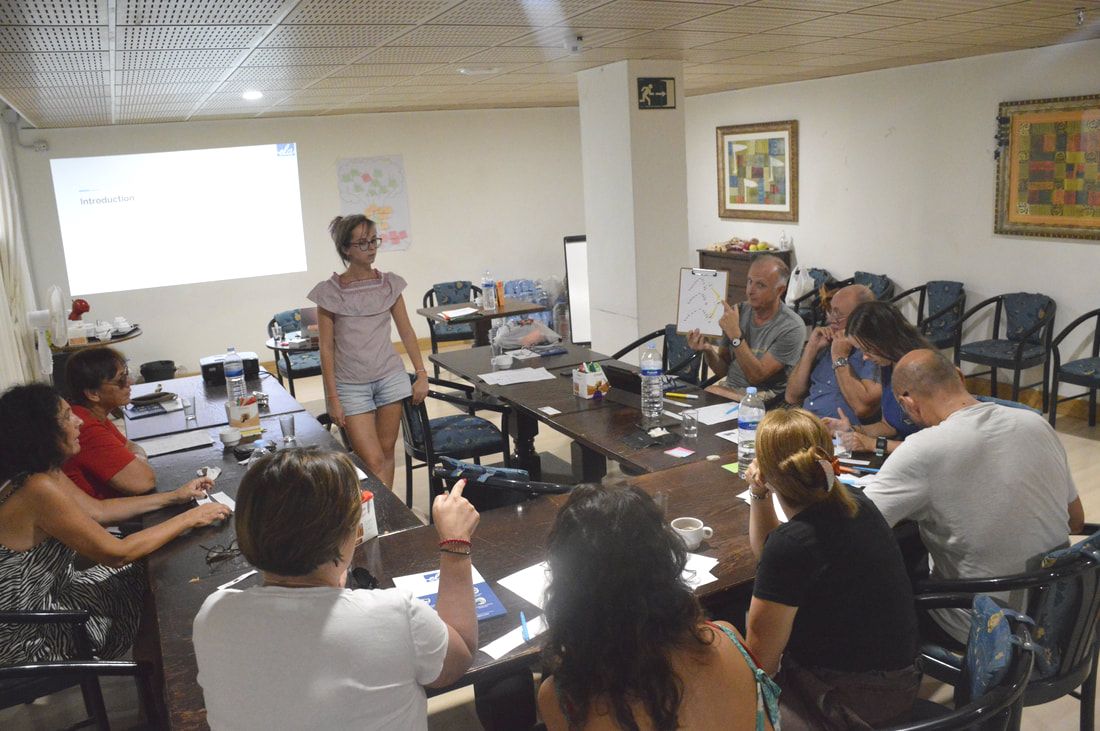
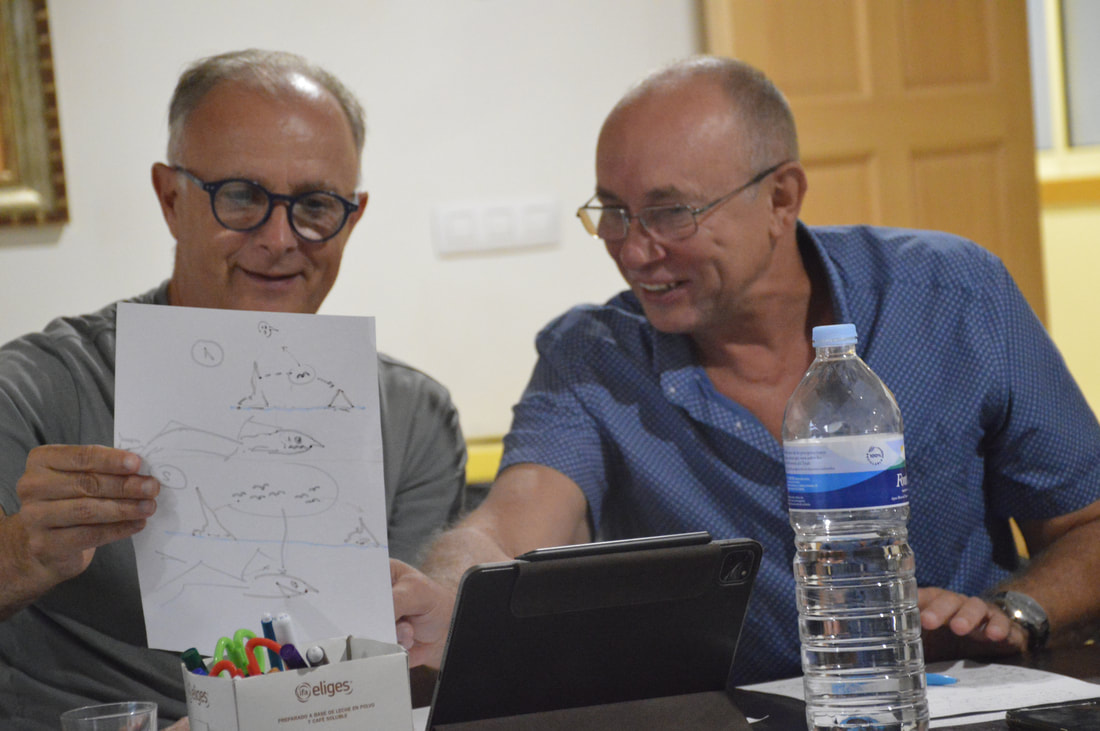
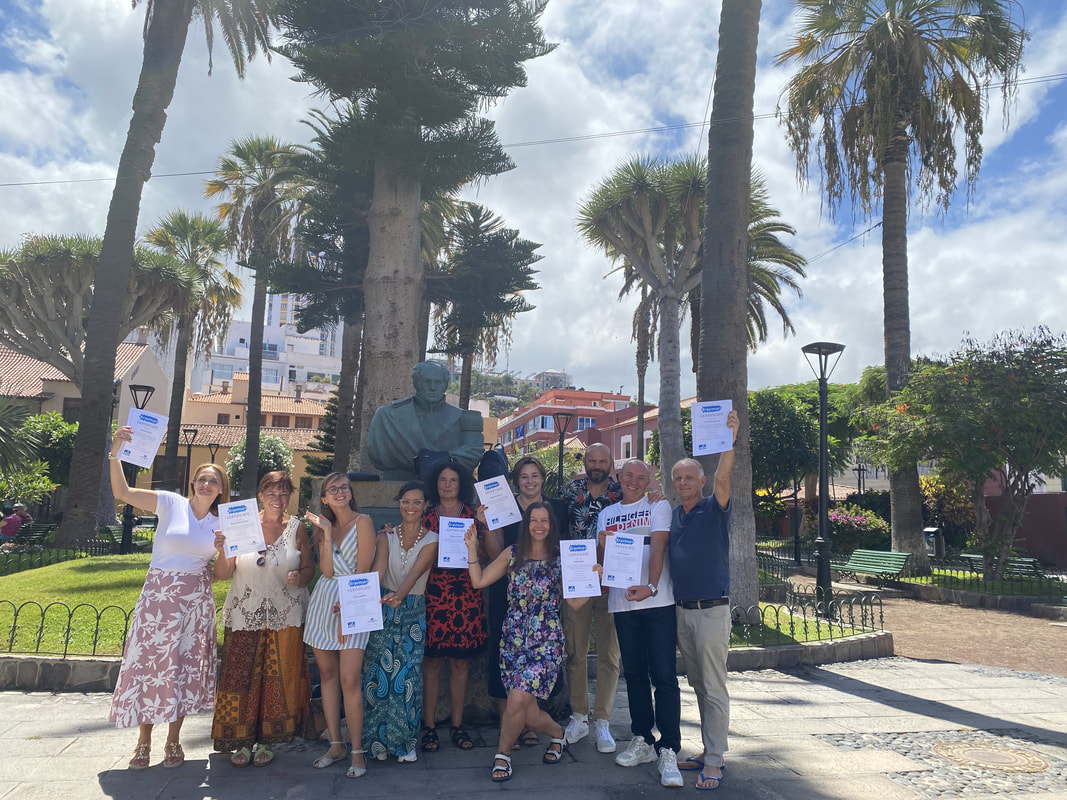
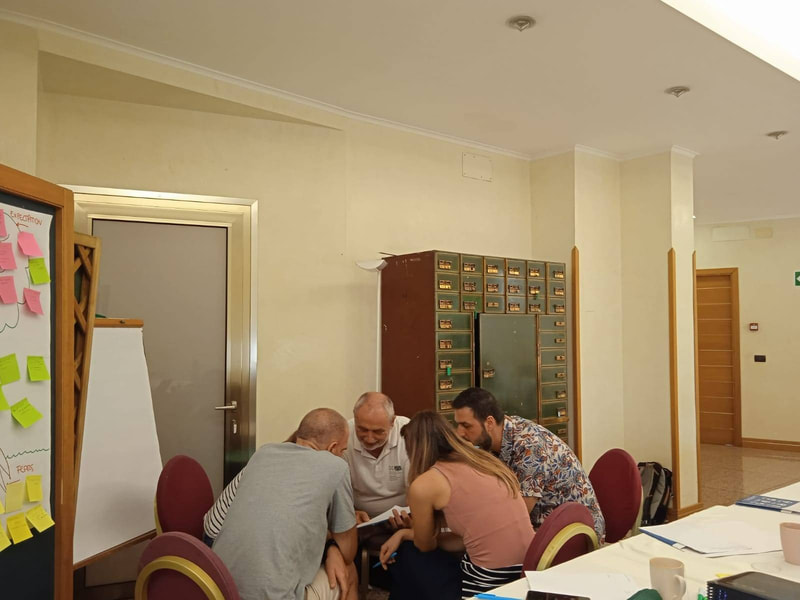
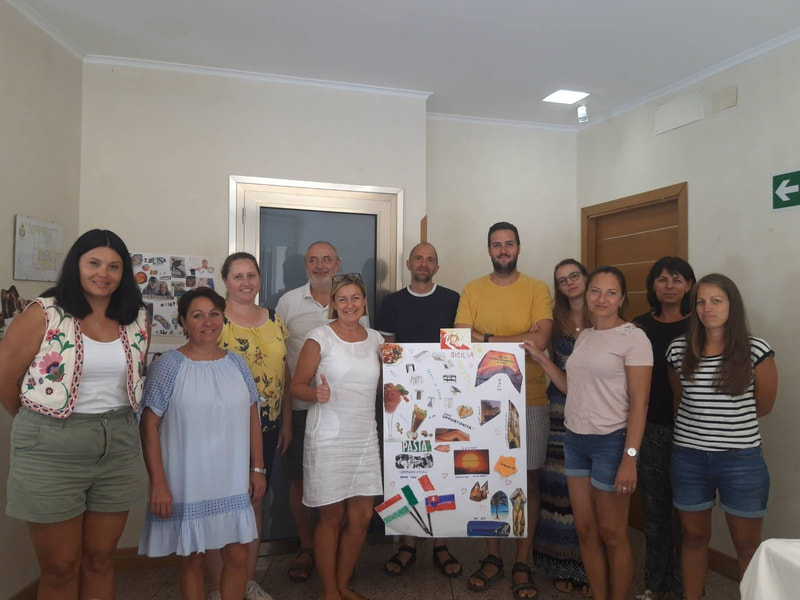
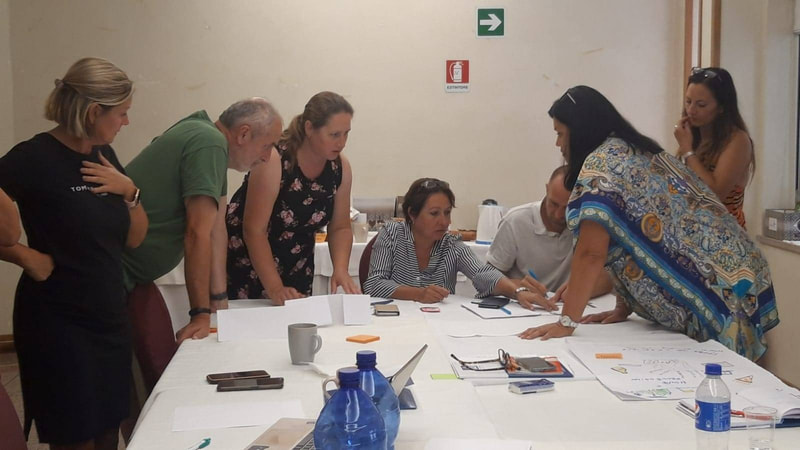
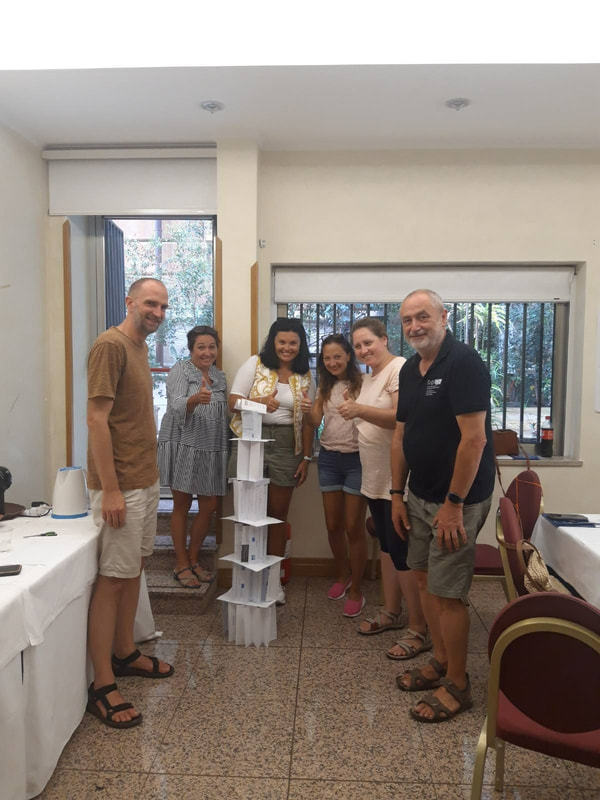
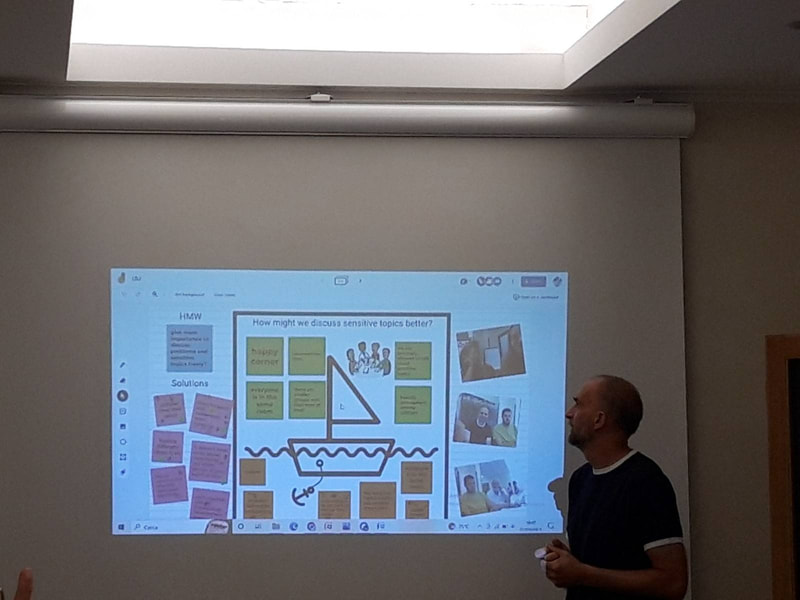
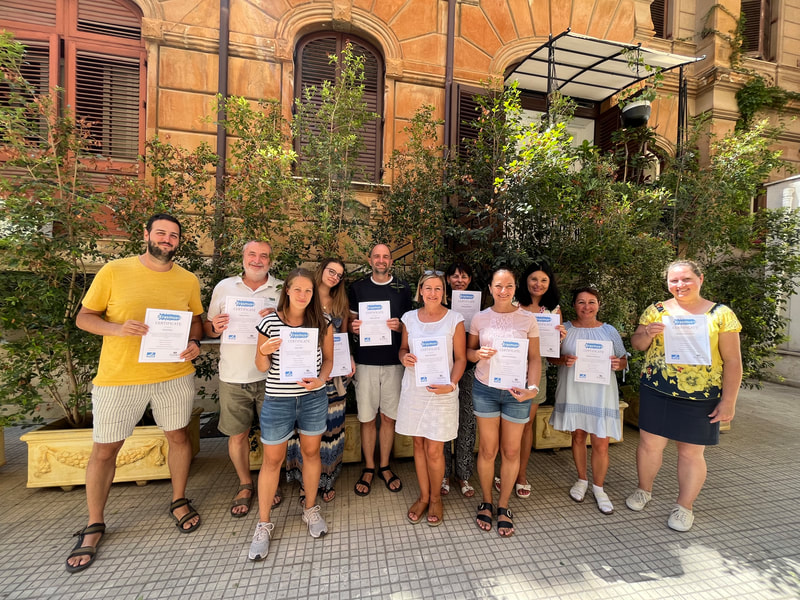
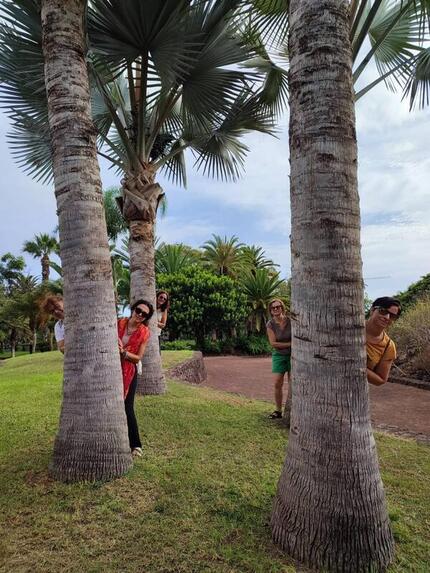
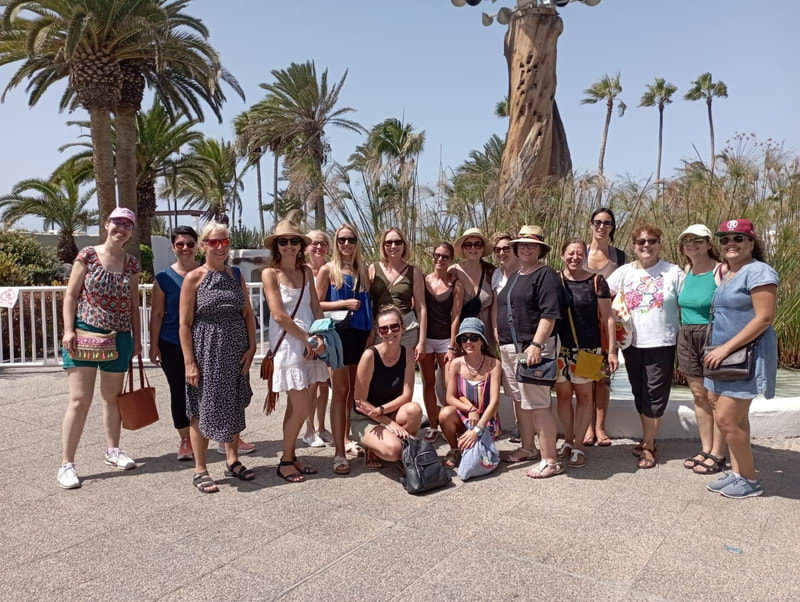
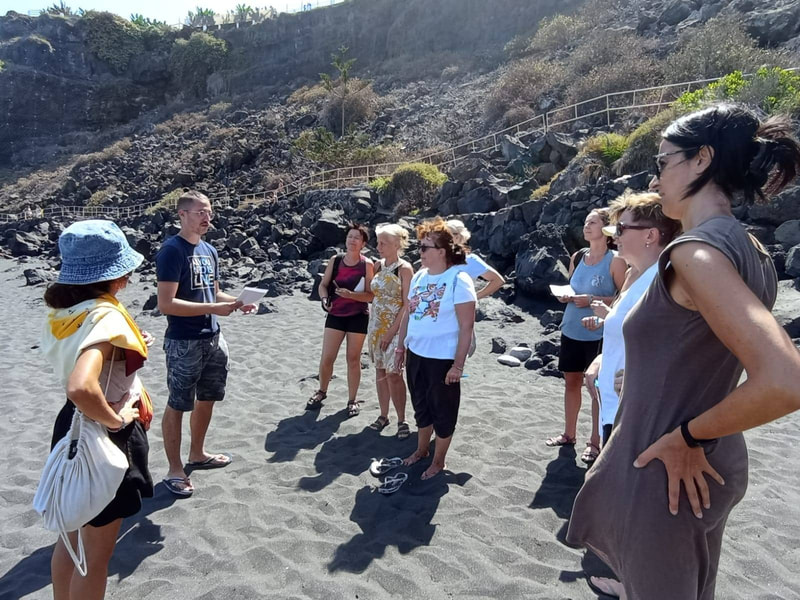
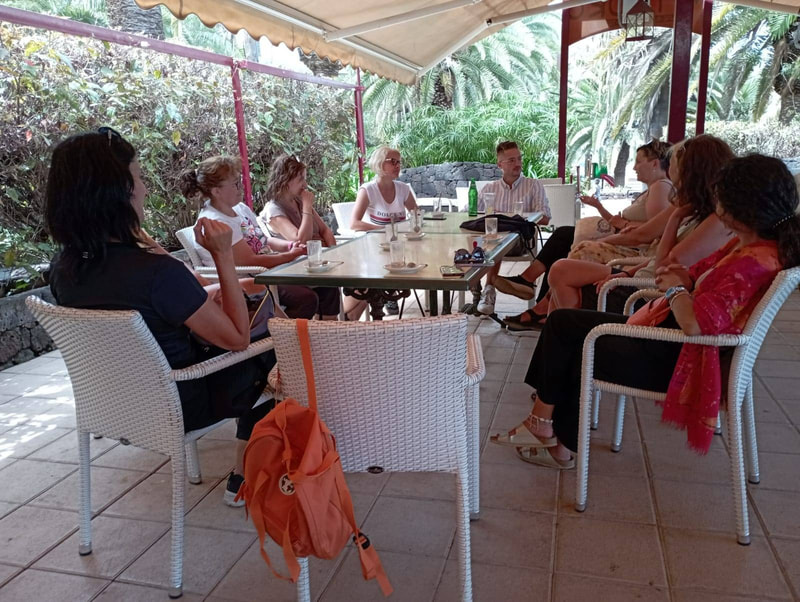
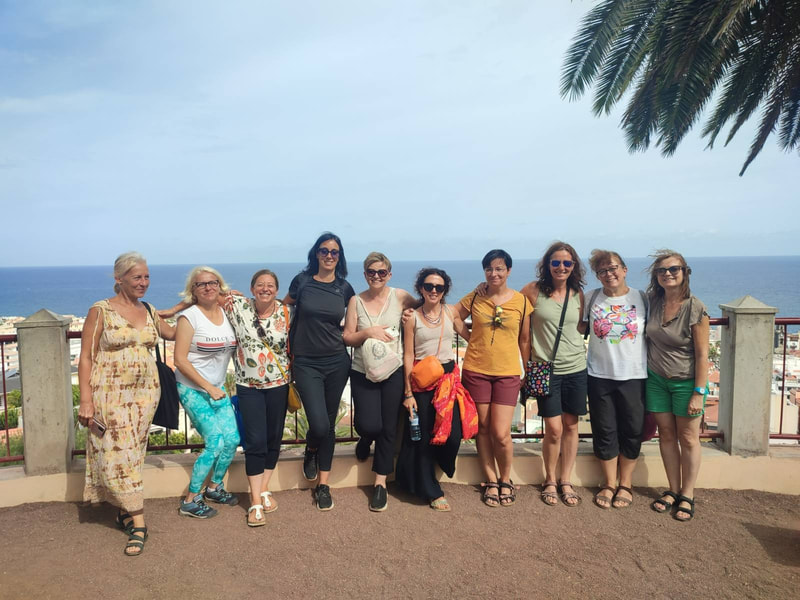
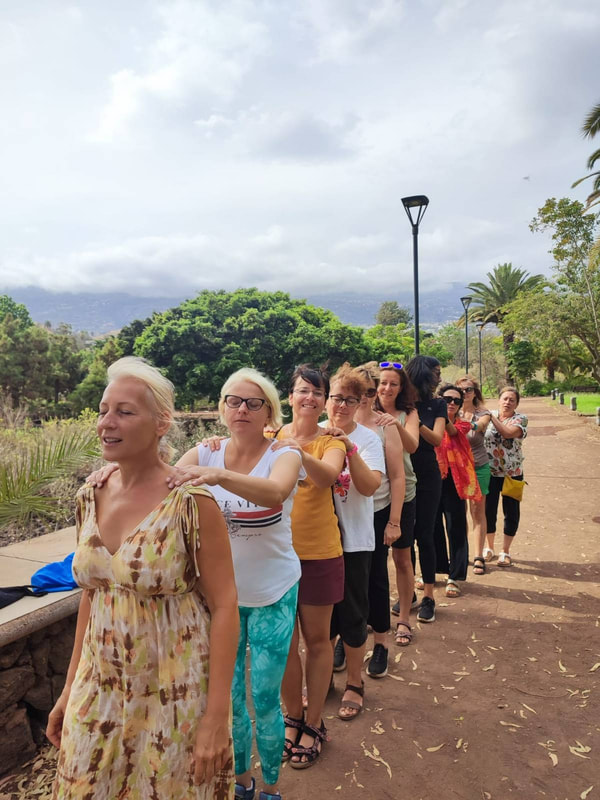
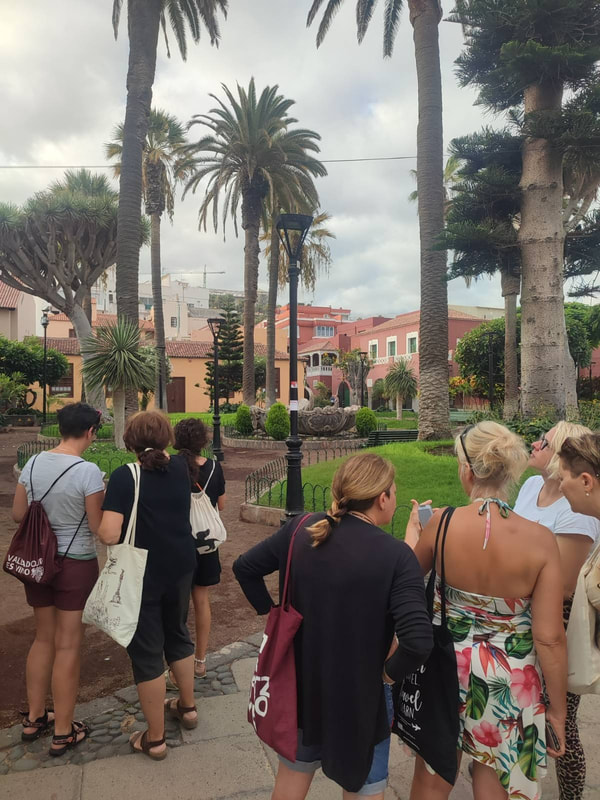
 RSS Feed
RSS Feed









